The Journey of Aluminum: From Bauxite to Your Front Door
I. Introduction
In every corner of our modern lives, aluminum asserts itself—be it in the vehicles we drive or the protective kitchen foils we use. While its presence is undeniable, few recognize the intricate journey that transforms this raw mineral into a cornerstone of contemporary living.
Aluminum’s tale begins with bauxite, a rugged mineral far removed from the refined gleam we’re accustomed to. But this transformation from earthy mineral to ubiquitous metal isn’t just about industrial processes—it’s a testament to the meticulous craftsmanship of its producers. Together, we shall journey through a story that marries precision with innovation, reflecting the heart of the aluminum industry.
II. Bauxite Mining: The Beginning of Aluminum’s Journey

Unbeknownst to many, bauxite mining is the starting line for aluminum’s journey. This reddish-brown mineral, found predominantly in tropical terrains, is a foundational element of the aluminum industry.
Bauxite mining is a meticulous process. First, layers of earth and vegetation are removed to reveal the bauxite, typically 4-6 meters below the surface. The bauxite is then excavated using earth-moving equipment and transported to refineries for processing.
However, the task isn’t merely about extraction. The finest suppliers uphold rigorous standards, selecting only superior bauxite to ensure a superior end product. Hand-in-hand with these standards is a profound commitment to the environment. Embracing sustainable mining practices is paramount. It’s not about depleting the earth but borrowing from it, ensuring minimal disruption to the ecosystem and surrounding communities.
III. Refining: Turning Bauxite into Alumina
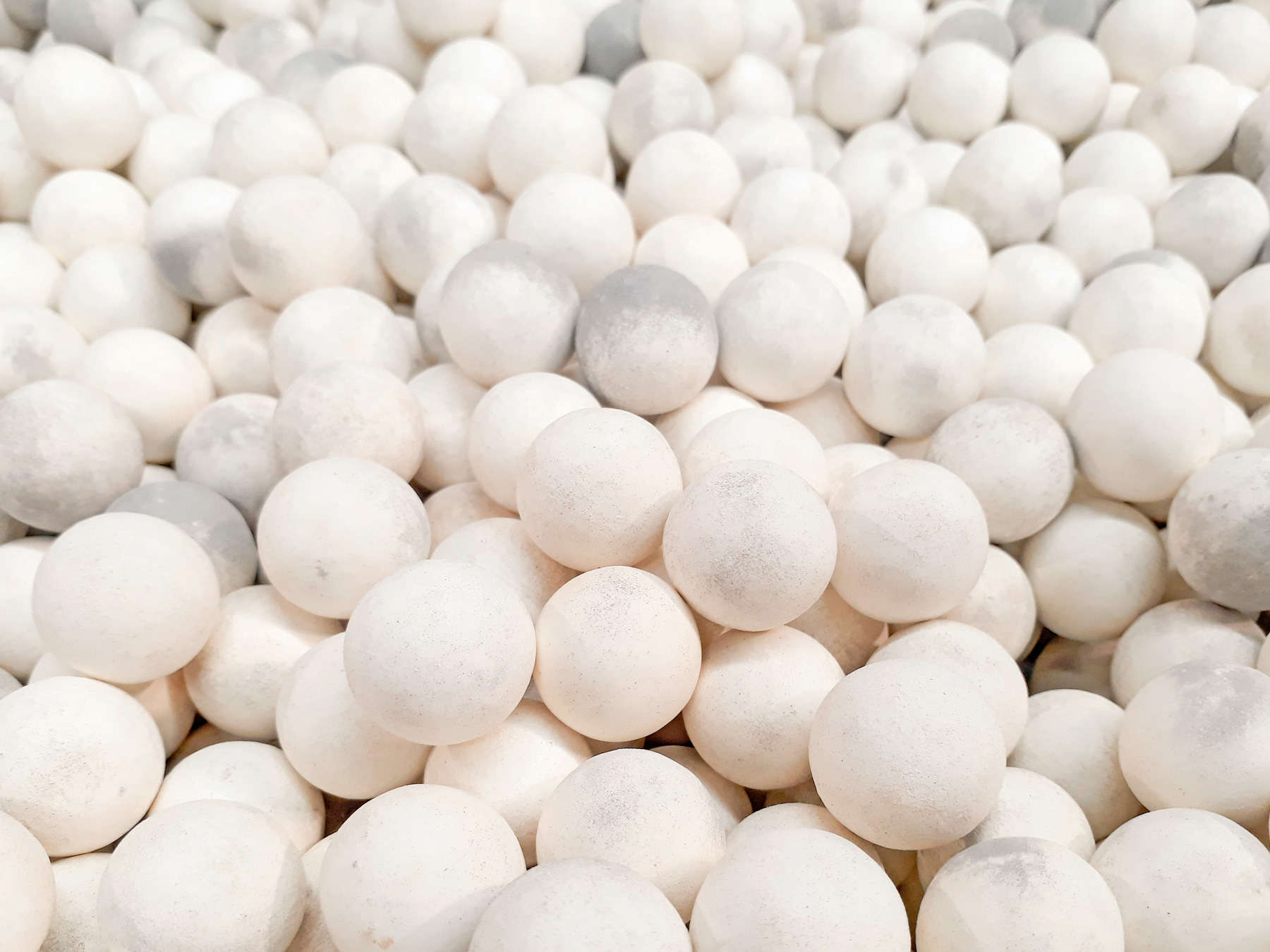
The process of refining bauxite into alumina is an intricate, scientific process. Imagine taking a substance like bauxite, earthy and raw, and turning it into a pristine white powder called alumina, ready to be transformed further into aluminum.
This metamorphosis is achieved through the Bayer Process. Bauxite is first crushed and then mixed with a hot caustic soda solution, which dissolves the aluminum oxide contained in the bauxite. Once dissolved, impurities settle to the bottom, and the remaining alumina solution is allowed to cool. Alumina crystals form, are filtered, and then undergo a heating process to remove any leftover water.
Throughout this stage, precision is paramount. The goal? Ensure every grain of alumina achieves the highest purity. This meticulous attention to detail lays the foundation for what’s next: the magical conversion of this white powder into gleaming aluminum.
IV. Smelting: Birth of Pure Aluminum
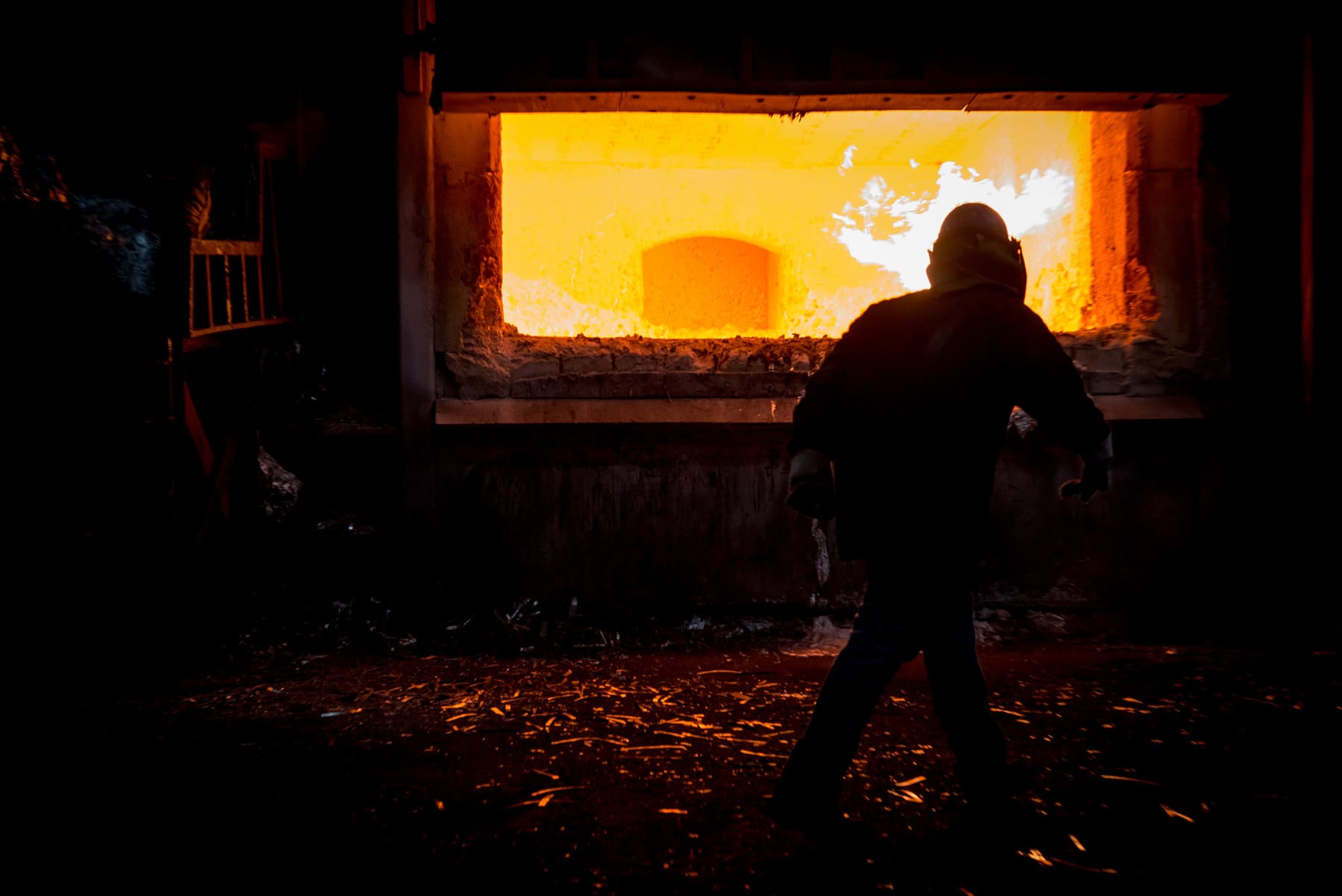
Smelting is where alumina transitions from a dormant state to animated brilliance. Picture a mineral, in powder form, undergoing a sophisticated, energy-intensive procedure to emerge as a gleaming metal.
Central to this alchemical process is the Hall-Héroult method. Here, alumina undergoes electrolysis in molten cryolite, a naturally occurring mineral used to lower the melting point of alumina for the extraction process. A direct current is passed through the solution, causing the aluminum ion to deposit at the bottom of the reduction cell, where it can be tapped off.
However, the high energy demand of the process necessitates a conscious push towards more sustainable practices. It’s a challenge the industry takes in stride, always seeking innovations to balance purity with eco-responsibility.
V. Rolling and Casting: Crafting the Aluminum Sheet
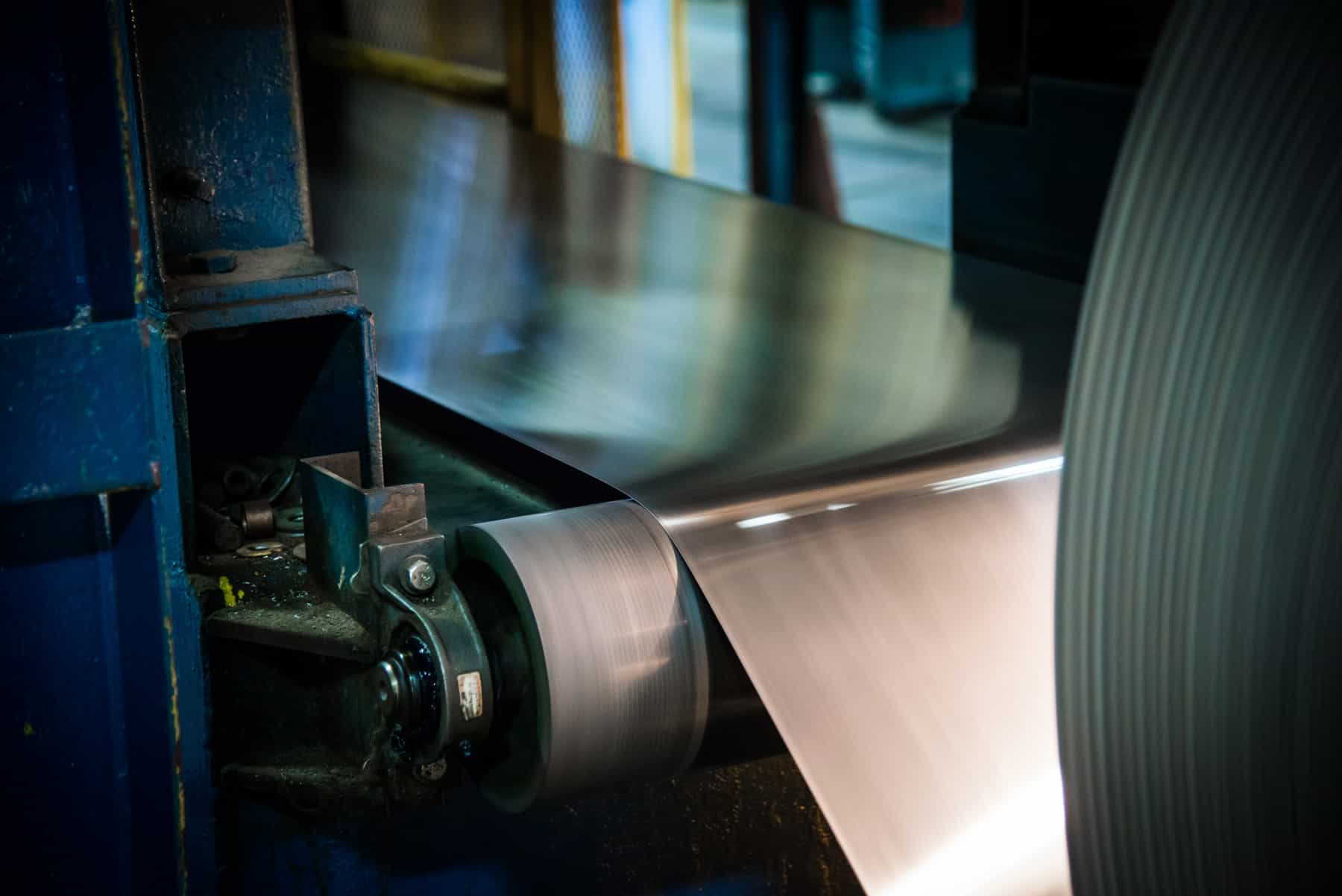
Post-smelting, aluminum, in its newly acquired pure form, is ready for its next transformative phase. This is where the metal’s flexibility truly shines, being molded into sheets with specific properties tailored to their future applications.
The processes of rolling and casting are akin to the artistry of a blacksmith shaping a blade. Rolling involves passing the aluminum between high-pressure rollers to achieve the desired thickness. Meanwhile, casting solidifies molten aluminum into specific shapes using molds.
Every rolled or cast sheet is engineered for a distinct purpose. Whether it’s for the aerospace industry, can-making, aerospace, building products or everyday kitchenware, each sheet is a blend of science and craftsmanship. Manufacturers, with their acute knowledge, ensure that each sheet is not just tailored, but sculpted to perfection.
VI. From Manufacturers to End-Products
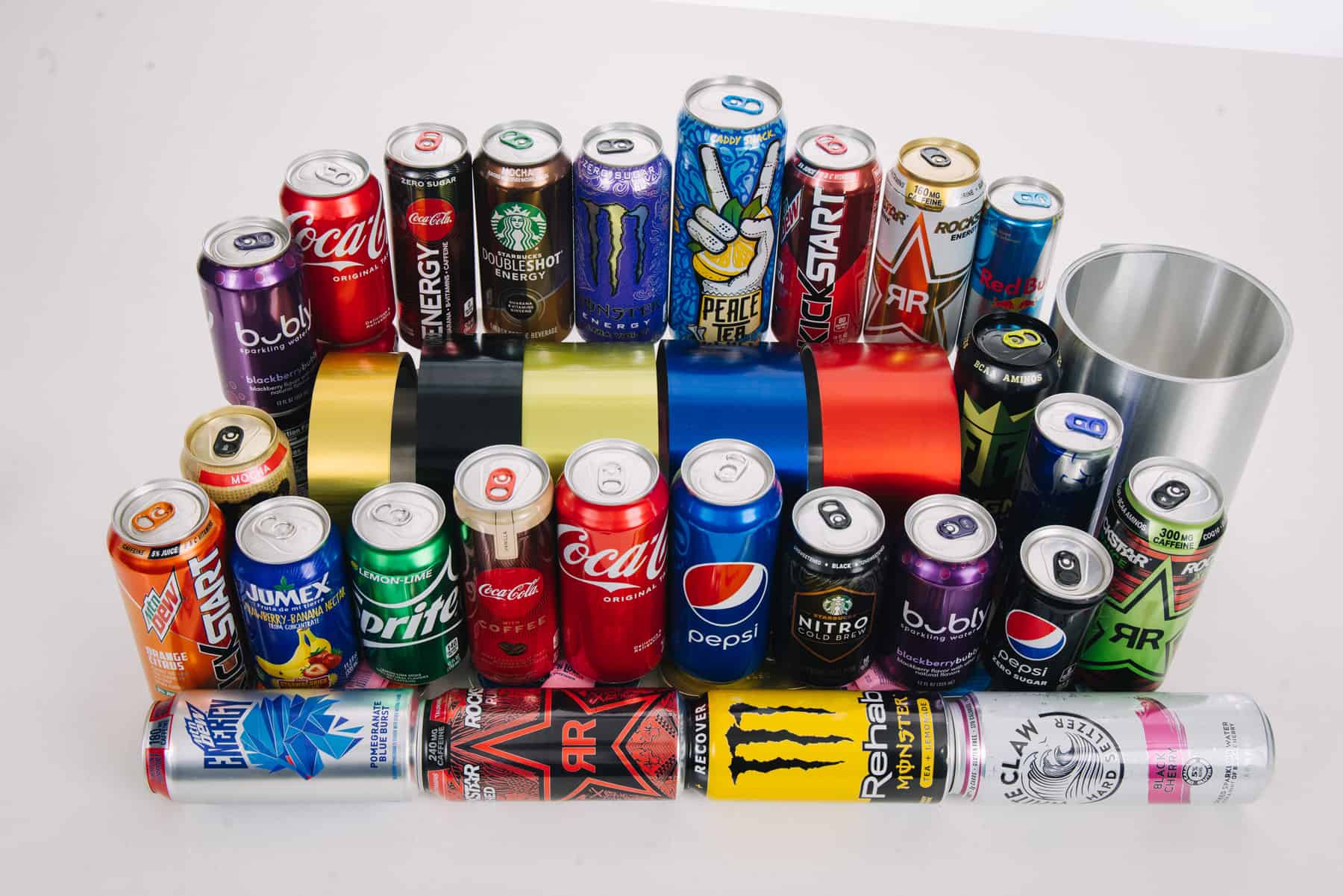
Behind every everyday object made of aluminum is an intricate process and a story of meticulous engineering. This lustrous metal, shaped and perfected, is destined for myriad applications, each one demanding a unique touch.
Consider the soda can you might sip from during lunch, or the sleek laptop casing you work on. These products, seemingly simple, are the result of rigorous design and manufacturing processes. The aluminum used in them has been selectively crafted to meet specific standards such as strength, flexibility, formability and appearance.
In this vast manufacturing dance, suppliers and manufacturers harmoniously collaborate. Their collective goal is to ensure every sheet of aluminum employed not only fits its intended role but exceeds quality expectations. This union between supplier and manufacturer is a testament to the industry’s dedication to superior product creation.
VII. Sustainability: The Golden Standard
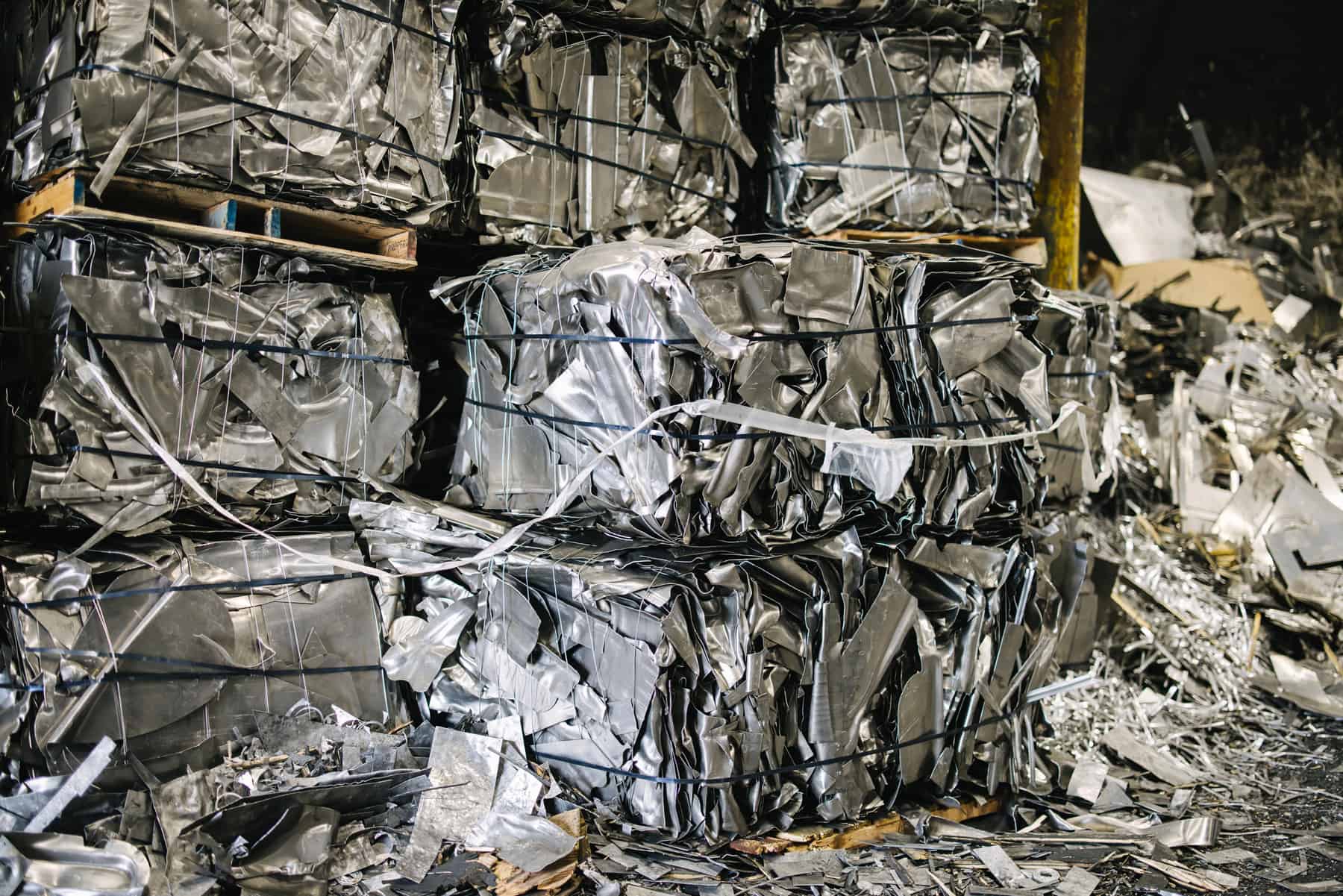
In the vast tapestry of the aluminum industry, Golden Aluminum stands not just as a beacon of production, but as a pioneer championing sustainability’s transformative power.
A closer look at our operations illuminates this commitment:
- Bauxite Mining: Golden Aluminum block caster, utilizes recycled aluminum in percentages that are beyond the industry standards. This isn’t just an operational decision—it’s a testament to our forward-thinking commitment, lessening the environmental impact.
- Energy-Efficient Production: Drawing from the intricate processes unveiled in prior sections, our embrace of NexcastTM technology emerges as a paradigm of innovation. By radically reducing greenhouse gas emissions, and operating at higher energy-efficiency rates compared to other Mills. This isn’t just about operational excellence—it’s about redefining the balance between efficiency and our ecological footprint.
- Industry Recognition: Beyond our internal strides, our initiatives have garnered the attention of industry peers. Our esteemed affiliation with the Aluminum Stewardship Initiative (ASI) is both a validation and a testament to our unwavering commitment to sustainable operations.
In essence, sustainability at Golden Aluminum is not just an afterthought. It’s a core philosophy, part of our DNA, woven seamlessly into our operational fabric.
VIII. In Retrospect: Aluminum’s Promise for Tomorrow
The transformative tale of aluminum offers more than a mere insight into its creation; it mirrors our society’s ever-evolving aspirations and innovations. With every step of its journey, aluminum challenges us to view the commonplace with newfound appreciation and to recognize the profound in the ostensibly simple.
Golden Aluminum stands at this intersection of past achievements and future aspirations. By understanding and honoring the intricate processes of aluminum production, we acknowledge the responsibility we bear not just to our customers, but to the planet that provides for us.